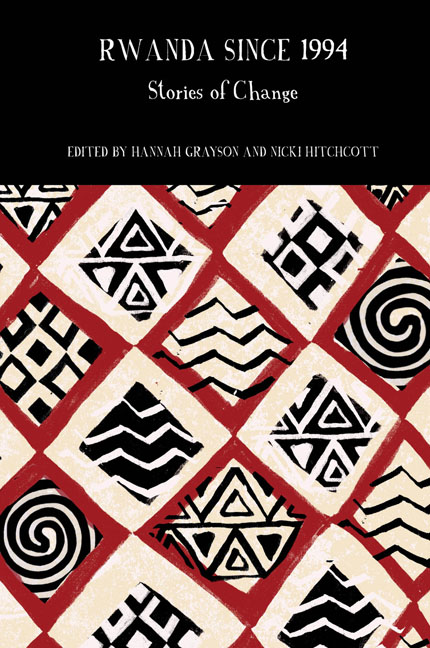Introduction: Rwanda since 1994
Summary
In July 1994, after 100 days of the most brutal massacres imaginable, in which it is estimated that over a million people died, the Rwandan Patriotic Front (RPF) army captured the Rwandan capital of Kigali and brought the Genocide against the Tutsi to an end. The city, as Jean-Paul Kimonyo notes, was almost totally destroyed:
Au lendemain de la prise de Kigali le 4 juillet 1994 et au terme de trois mois de massacres intenses et de combats acharnés, Kigali est une ville fantôme. Il y regne le silence, le vide et l’odeur de la mort. Quelques rares véhicules des militaires du FPR, de petites patrouilles, circulent dans les rues vides encombrées de carcasses de voitures. Des survivants, véritables spectres ambulants, émergent de leur cachette […] Des chiens repus de cadavres errent en meutes agressives et, de loin en loin, les tirs qui les abattent percent le silence. (2017: 129)
Kigali today looks nothing like this. The city centre's high-rise buildings and immaculate roadsides are a far cry from the violence, chaos and confusion of 1994 when Rwandans did not know which of their family members were alive or dead. Although films such as Terry George's Hotel Rwanda have contributed to the overdetermination of Rwanda by the events of 1994, Malaika Uwamahoro's opening poem in this volume challenges this image and points to a new version of the country as ‘The world's example and definition of hope, resilience and ambition’. Over the past 25 years, Rwanda has been transforming itself from the devastation of 1994 into what is seen by government donors and the international community as a remarkable success story: ‘an example for the East African region and perhaps even for the whole continent’ (Marijnen and van de Lijn, 2012: 13).
This book is about the changing nature of Rwanda: how individual people and the nation as a whole have changed in manifold ways since suffering the horror of the Genocide against the Tutsi in 1994. Our aim with this volume is to explore from a range of disciplinary perspectives how Rwanda has undergone transformations. The Rwandan government narrative of progress represents a particular developmental trajectory that is tied to a nation-building project at home and the dissemination of a particular image beyond Rwanda's borders. But change in Rwanda is multifaceted, and the heterogeneous areas and experiences of change described in this volume demonstrate that range.
- Type
- Chapter
- Information
- Rwanda Since 1994Stories of Change, pp. 1 - 14Publisher: Liverpool University PressPrint publication year: 2019



